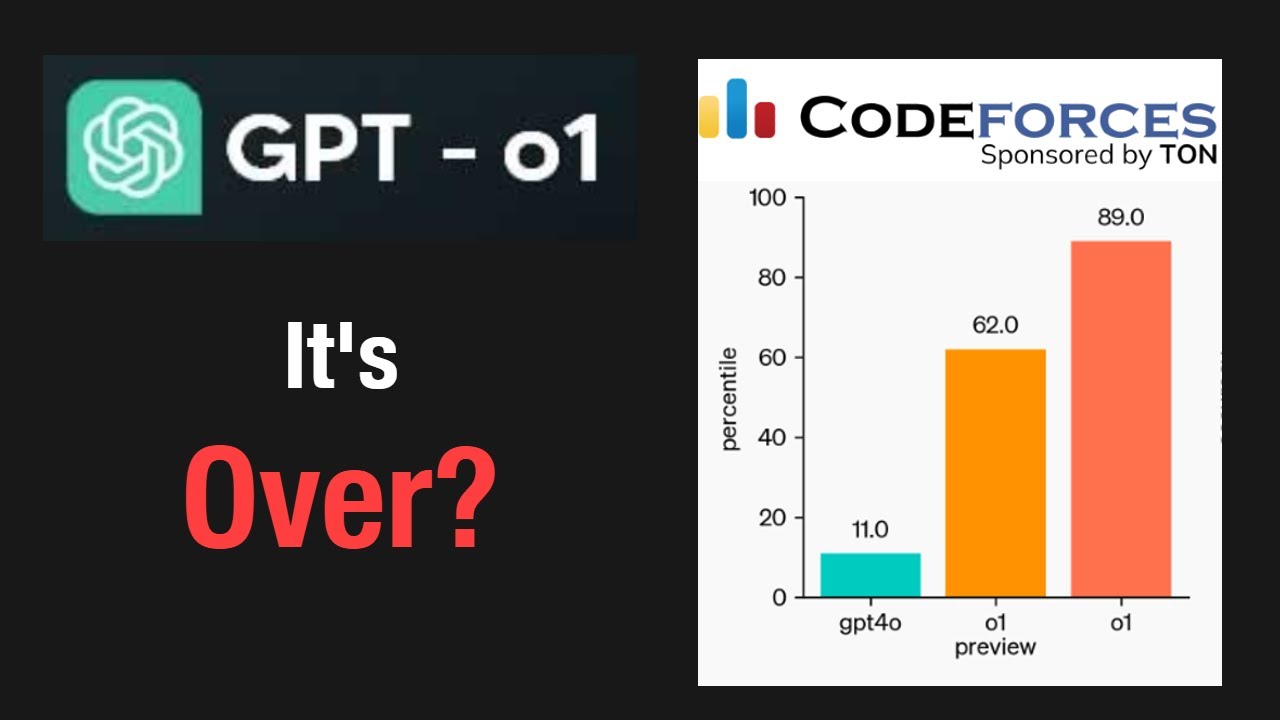The video reviews OpenAI’s new model, OpenAI 01, highlighting its impressive performance in competitive programming and advanced physics, while also noting its slower response generation due to a more complex internal dialogue. The presenter discusses the potential impact of this technology on programming and software development, suggesting it could democratize coding but also raises questions about the future of programming jobs and the evolving nature of the profession.
The video discusses the recent release of OpenAI’s new model, OpenAI 01, which is claimed to be a significant advancement over previous models like GPT-4. The presenter approaches the announcement with a critical mindset, aiming to evaluate the model’s capabilities without being swayed by hype. They acknowledge that past releases often led to inflated expectations, but they are open to the possibility that this model could indeed represent a major leap in technology, particularly in areas like coding and competitive programming.
OpenAI 01 reportedly ranks in the 89th percentile for competitive programming on platforms like Codeforces and demonstrates impressive performance in advanced physics. The presenter notes that while these benchmarks are promising, they may not fully capture the model’s overall capabilities. They highlight that OpenAI 01 is slower in generating responses compared to its predecessors, as it engages in a more complex internal dialogue to arrive at answers, which could impact its practical usability.
The video showcases a coding prompt where OpenAI 01 successfully creates a simple video game, demonstrating its ability to think through the problem and generate code that meets specific requirements. This capability is seen as a game changer, potentially democratizing programming by allowing individuals without technical backgrounds to create software. The presenter reflects on how this could reshape the landscape of programming and software development, drawing parallels to historical advancements in coding practices.
Despite the advancements, the presenter expresses skepticism about the immediate impact on the job market for programmers. They argue that while productivity may increase, the fundamental value of programming—solving technical and business problems—will still be relevant. The discussion raises questions about the future of programming roles, suggesting that the profession may evolve rather than become obsolete, with new layers of abstraction emerging in the field.
The video concludes with a broader contemplation of the implications of such advancements in AI. The presenter questions how society will adapt to these changes, particularly in terms of job roles and the value of software development. They emphasize that while the technology is improving rapidly, predicting its long-term effects on the workforce and industries remains challenging, highlighting the need for ongoing dialogue about the future of work in an increasingly automated world.
